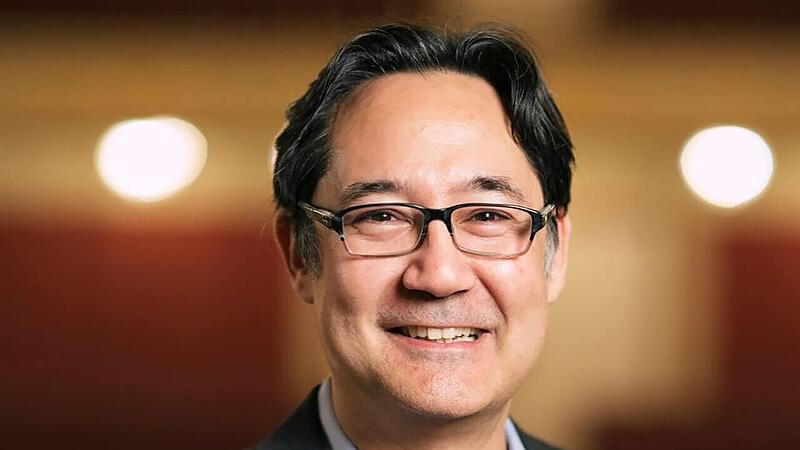Image: Photo: Lukas Beck
“It poured,” Rico Gulda (55) remembers the opening concert of Upper Austria. Monastery concerts in 2013. However, the designated artistic director remembered the concert in the marble hall of the St. Florian monastery because of “a young conductor who stepped in and had his first encounter with the Bruckner Orchestra: the wonderful, great Markus Poschner”, since 2017 its chief conductor. He also remembers “the concert with the great Herbert Blomstedt”, who celebrated his 90th birthday in 2017 conducting the Bamberg Symphony Orchestra with Bruckners “Fifth” at the monastery concerts celebrated. “With pleasure and pride” Rico Gulda looks back on ten years as artistic director.
Listened to music? Certainly heard!
Two anniversaries accompany the 55-year-old’s mission: “to enable the special moment of becoming music. The pandemic has shown us that nothing can replace this live experience, this moment of encounter between artists and the public”, to which the OÖ. Invite monastery concerts from June 3rd to venerable sacred walls in St. Florian, Lambach, Kremsmünster and Wilhering.
For the first time this year, a keynote speaker will precede the sounds with thoughtful words: “Music belongs to whom?” The Hamburg historian and author Philipp Blom will explore this question. Gulda: “I had the feeling that we need a thought process about what music actually means. Heard music – what actually? Loved, valued, encouraged, protected, set free? In any case, music is heard. It also speaks through itself. What is definitely appropriate is that we create the conditions for music to be possible,” he refers to the Romanian maestro Sergiu Celibidache (1912–1996), whom he admires, and whose credo: “ Music is not, music becomes.”
Last but not least, “thanks to the loyal audience and all members of the Stiftskonzerte Association. The latter are like “a perfectly tuned grand piano that the artists then play on”. As a pianist, Gulda has already touched the keys at the monastery concerts, accompanying Michael Schade and Matthias Goerne. The appearance of his Ukrainian colleague Vadym Kholodenko, who lets Frederic Rzewski’s “The People United Will Never Be Defeated” meet Beethoven’s “Moonlight Sonata”, promises a ringing statement in times like these. “A great pianist from Kiev, I discovered him through my connection to the Cliborn competition in the US, which he won.”
His father, piano legend Friedrich Gulda, is reminiscent of his cello concerto, played by Raphaela Gromes from Munich and the SIGNUM saxophone quartet in Kremsmünster. How is the son, hearing the music of his father, who died in 2000, on stage? “It’s always a journey back in time to my past. He loved the Salzkammergut. There is a homage to this region in the slow movement.”
Half Japanese
Rico Gulda, brother of the pianist Paul Gulda, grew up mainly with his mother, also a pianist and native Japanese, in Munich, “interrupted by long stays at Lake Attersee with my father or when travelling. When I was a little kid, I mainly spoke Japanese,” he recalls.
His Japanese roots are still with the father of three today: “In Japanese culture, it is not usual to simply address things directly. People who know me notice when I say something, but in a way that would be more direct here. I then have to admonish myself and add: By the way, that was said in Japanese. Or I’ll provide the translation: I didn’t actually mean that you could think about it, whether you might think about doing it. I actually turned it down. In my own way I am a wanderer between the worlds.”
He would like to “continue cheerfully on his way. You never really get there. I think that’s a good thing. Sometimes you feel like you are going more in the right direction than at other moments in your life. Right now I have the feeling that I am heading in the right direction”, also with Upper Austria. Monastery concerts, whose “good, strong idea” he wants to remain true to: “to present a pointed program with the best artists, precisely tailored to the special dignity of our beautiful monasteries.” Quatuor Ébène continues the tradition of renowned string quartets. Gulda’s mission of “absolutely keeping up with the times” includes “two great brass bands”: Mnozil Brass with trumpeter Thomas Gansch as an open air concert in the Stiftskellergarten in St. Florian and “Federspiel” in the Feigenhaus of Kremsmünster Abbey – two of the “Stiftskonzerte Landparien”. In the program path “Stiftskonzerte Klassik Extended” Philharmonix – a septet made up of members of the Vienna and Berlin Philharmonics – celebrate their boundless passion. With “The King’s Singers” from Great Britain, one of the best a cappella ensembles can be experienced in the Basilica of St. Florian.
By the way, the weather forecast for the opening on June 3rd in St. Florian promises bright sunshine this time.
Rico Gulda grew up with his mother Yuko Wakiyama
Source: Nachrichten




